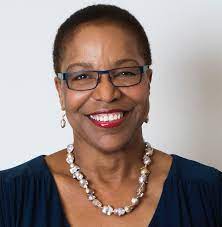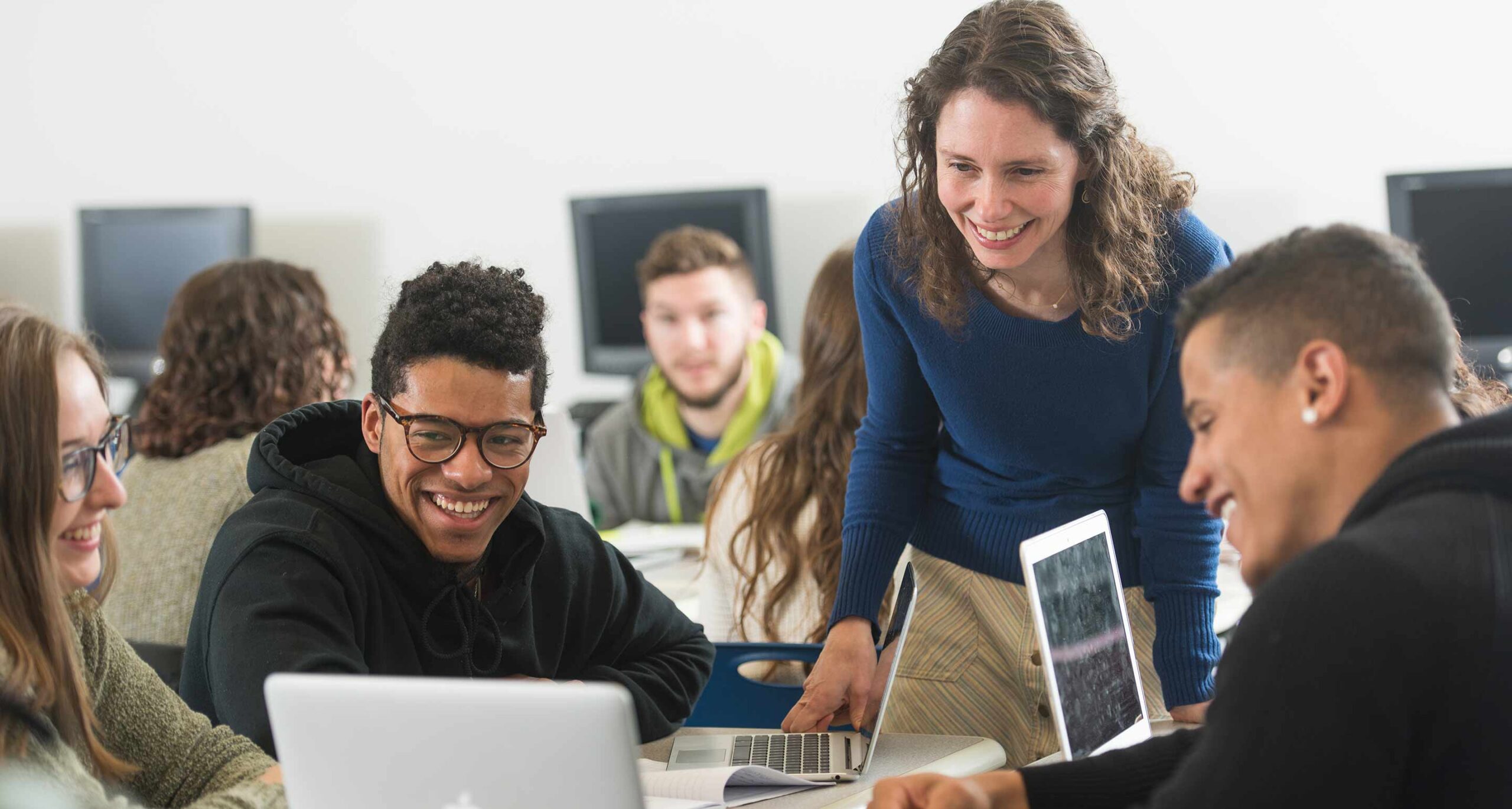Friday, September 23
9:00 am
Shuttle from hotel to the Assumption campus
9:30 am
Check-in and Breakfast – Tsotsis Family Academic Center (TFAC)
10:00-10:30 am
Welcome – TFAC Ballroom A
Greg Weiner, Interim President of Assumption University
Vincent Rougeau, President of the College of the Holy Cross
David Cunningham, NetVUE
Esteban Loustaunau, Assumption University
10:30-11:30 am
Keynote 1: Pursing Pathways Towards Achieving Inclusive Excellence.
Joan Reede, Dean for Diversity and Community
Partnership, Harvard Medical School
Introduction by Robert Bellin, College of the Holy Cross
11:30 am-12:00 pm
Keynote Debrief
12:00-1:00 pm
Lunch – Ballroom A
1:00-2:15 pm
Student Panel: What mentoring means to students
Panelists: Maria Gaughan, Assumption University; Amanda Lo, Worcester State University; Zach Nicholson, College of the Holy Cross; Fernanda Pérez-Alvarez, College of the Holy Cross
Moderated by David Crowley, Assumption University
Students from different universities and programs will share with conference participants their personal experiences of effective mentoring including (but not limited to!) independent research, academic advising, the curriculum and perhaps through other experiences like internships, course projects, study abroad, community service, etc. Panelists will be asked to describe how mentors (or mentoring communities) encouraged their sense of belonging, welcome, accompaniment or inclusion and how this helped form them in their undergraduate education.
2:15-2:30 pm
Coffee Break
2:30-3:30 pm
Breakout Sessions I – TFAC Ballroom B and TFAC113
Session A: Everyday Mentoring – TFAC 113
Co-facilitators: Michele Lemons and Jessica McCready, Biological and Physical Sciences, Assumption University
This interactive workshop will allow you to explore various ways to incorporate mentoring in your daily routine. Our goal is for you to leave the workshop with concrete examples and tips on how to improve the mentor-mentee relationship with your students.
Session B: Helping Students Find Their Own Path to the Health Professions – TFAC Ballroom B
Facilitators: Miles Cahill and Kirsten Hagstrom, Health Professions Advising, College of the Holy Cross
Requirements for health professional schools can be daunting for both students and advisors. Competition for admission to programs can also be quite high. These factors can lead to a challenging advising situation where some students adopt a “check-box mentality” and view “pre-health” as a single track. Some students pursue a career out of momentum from an early experience or expectations of others, and some students are either under-confident or over-confident. Rather than taking a “prescriptive approach” to advising, we suggest showing students options for completing requirements, and challenging their assumptions and prompting their self-reflection, so they make their own decisions based on their own experiences. We will work through some case study examples in groups to discuss how to advise some common situations.
3:45-4:45 pm
Breakout Sessions II – TFAC Ballroom B and TFAC113
Session A: Is there such a thing as a Bad Mentoring Experience? – TFAC 113
Facilitator: Caitlin Stover, Dean of Froelich School of Nursing, Assumption University
The goal of mentoring is for the mentor and mentee to build a relationship of shared intellect and experience for the professional growth of the mentee. Mentoring relationships do not follow a recipe for development, therefore, each experience will be unique based on the guidance of the mentor. What happens when the mentor does not provide the necessary direction and assistance? Has the mentee lost an opportunity for professional growth? Using real-life experience as a case example, we will explore several instances of successful and not-successful mentoring throughout a nurse’s journey to a founding deanship at a small Catholic liberal arts university. Lessons learned are broadly applicable so all participants are encouraged to attend and compare their professional journey.
Session B: Mentoring for the Exploration of Vocation and Cultivation of Virtue – Ballroom B
Facilitators: Rachael Baker, Amy Wilstermann and Julie Yonker, Calvin University
In this session, we will explore how explicit discussion of communities and the virtues that allow them to thrive, framed by a discussion of vocation as a call to live a certain type of life, make a difference in the training of future STEM leaders. You will have an opportunity to learn about the curriculum we are developing to train students on the value of virtues and community in developing thriving and productive teams, experience part of a faculty development session, and discuss the potential applications and reach of the program across NetVUE institutions. Our curriculum and training direct mentors, teachers, and students to give sustained attention to the ways that vocation and virtue shape how we think about our work.
5:00 pm
Bus to the Hogan Campus Center, Holy Cross. Bus pick-up by Assumption’s Testa Science Center
6:00-8:00 pm
Reception and Dinner – Hogan Campus Center Suite A
Welcome by Robert Bellin, College of the Holy Cross
David Cunningham, NetVUE
8:30 pm
Bus to the hotel and the Assumption campus. Bus pick-up outside the Hogan Campus Center
Saturday, September 24
8:00 am
Shuttle from hotel to the Assumption campus
8:30-9:00 am
Check-in and Breakfast (Coffee, tea, fruit, pastries)
9:00-10:30 am
Keynote 2 – The Power of Mentoring Moments – TFAC Ballroom A
Becky Wai-Ling Packard, Professor of Psychology and Education, Mount Holyoke College
Introduced by David Crowley, Assumption University
Not all mentoring interactions are formalized; in fact, most are informal. And many of us remember small moments when someone believed in our potential or pointed us in a helpful direction. In reality, one interaction can unfold in contrasting ways—it can encourage or discourage, uplift or deflate, affirm or invalidate. We can be intentional in the way we craft our stories, enlist participation, and express our concerns. Participants will engage in scenario discussions and leave with concrete strategies for increasing the power of everyday moments with students and colleagues alike.
10:30-11:30 am
Breakout Session III – TFAC Ballroom B and TFAC 113
Session A: Overcoming Career Decision-Making Barriers Using Ignatian Discernment – TFAC 113
Facilitator: Keith F. Muccino, S.J., M.D. Associate Director of Pre Health Professions Advising, College of the Holy Cross
Referencing a theoretical taxonomy of difficulties frequently encountered by PreHealth Students in their career decision-making, this presentation will seek to offer students and their advisors a novel framework for applying Ignatian principles of discernment to help overcome barriers encountered when choosing a career in the health professions.
Session B: Cultivating Vocation through Internships – TFAC Ballroom B
Facilitators: Susan Sabelli, Clinical Coordinator, Travis Gagen, Assistant Professor of Health Sciences; Bryce Eckenrode, Health Sciences Major (’22); CIGNA Summer Intern
Required internships incorporated into undergraduate curriculum is a pedagogical approach that can hone thoughtful citizenship and transform the minds and hearts of students. Internships enliven the experience of a liberal arts education by bridging theory to practice. This session will describe the form and function of a required internship for pre-health professionals and utilize student testimonials to discuss the perspectives, experiences, and vocational outcomes resulting from the internship experience. Emphasis will be given to the mentor/mentee relationship that fosters bidirectional serendipitous events consequently cultivating vocation through internships. Session participants will have the opportunity to interact with the panel to share ideas, discuss challenges, and develop best practice strategies to implement a required internship component to undergraduate education.
11:30-12:00 pm
Final comments and farewell – TFAC Ballroom A
Esteban Loustaunau and David Cunningham
12:00-1:00 pm
Boxed Lunches Available
1:00-4:30
Post-Gathering Workshop: Mentoring for Virtues in Community: Practices for Successful Teamwork – TFAC Ballroom A
Facilitators: Rachael Baker, Amy Wilstermann and Julie Yonker, Calvin University
Science is a collaborative endeavor, but we don’t always think about how to prepare students to work successfully in a collaborative or team environment. In our workshop, we will explore how explicit discussion of communities and the virtues that allow communities to thrive make a difference in the training of future student leaders and the culture and engagement within your classrooms and research spaces. We will consider how mentorship of students is best framed by a discussion of virtuous calling. You will join Rachael Baker, Amy Wilstermann and Julie Yonker who have developed a curriculum to train students on the value of virtues and community in developing thriving and productive teams. You will have an opportunity to learn about how to implement practices in your science classrooms or labs. At the end of the session, we will provide access to curriculum you can use with students to teach them about how to work well in teams and to improve engagement in your classrooms or research spaces.
 Joan Y. Reede, Dean for Diversity and Community Partnership at Harvard University Medical School. At Harvard Medical School, Dr. Reede has created and developed more than 20 programs aimed at creating pathways and leadership opportunities for minorities and women who are interested in careers in medicine, academic and scientific research, and the health care professions.
Joan Y. Reede, Dean for Diversity and Community Partnership at Harvard University Medical School. At Harvard Medical School, Dr. Reede has created and developed more than 20 programs aimed at creating pathways and leadership opportunities for minorities and women who are interested in careers in medicine, academic and scientific research, and the health care professions. Becky Wai-Ling Packard, Professor of Psychology and Education at Mount Holyoke College. Professor Packard’s research focuses on mentoring, with an emphasis on how individuals such as first-generation college students, women, and persons of color construct mentoring networks as they navigate complex pathways toward higher education and work.
Becky Wai-Ling Packard, Professor of Psychology and Education at Mount Holyoke College. Professor Packard’s research focuses on mentoring, with an emphasis on how individuals such as first-generation college students, women, and persons of color construct mentoring networks as they navigate complex pathways toward higher education and work. 
